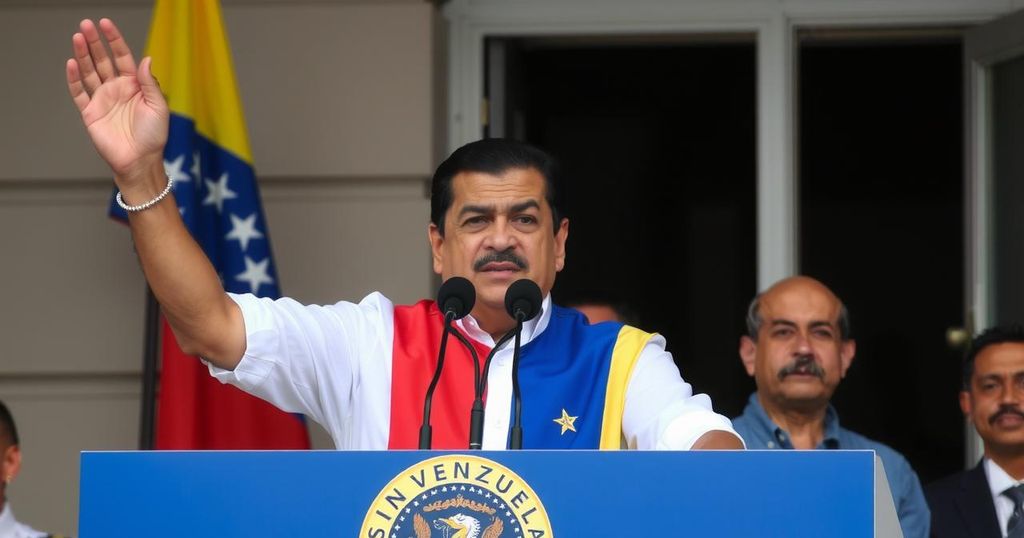Venezuelan President Nicolás Maduro was sworn in for a third term despite evidence suggesting election fraud. His inauguration, contested by the opposition, sparked protests and led to sanctions from the EU and U.S. Supporters crowded the event, while opposition leader María Corina Machado faced detention amid calls for her release. The political unrest indicates ongoing challenges for democracy in Venezuela.
On January 28, 2024, Venezuelan President Nicolás Maduro was ceremoniously sworn in for a third consecutive term, extending his contentious governance until 2031. This event occurred amidst widespread accusations of electoral fraud and claims from the opposition that their candidate, Edmundo González, secured twice the votes. The inauguration, held in Caracas and closely monitored by security personnel, drew mixed reactions from crowds. In his inaugural address, Maduro asserted the legitimacy of his presidency, vehemently rejecting outside interference, particularly from U.S. authorities. The opposition has presented evidence, supported by international observers, suggesting significant discrepancies in the election results, leading to significant unrest and protests across the nation.
In response to the controversial electoral process, both the European Union and the United States imposed new sanctions on numerous Venezuelan officials implicated in undermining democratic integrity. This political tension was further exacerbated by the reported detainment of opposition leader María Corina Machado, who had made a public appearance to advocate for González. Following her brief detention, which was denied by government officials, international leaders, including U.S. President-elect Donald Trump, expressed support for Machado and the opposition, condemning the Venezuelan government’s tactics to stifle dissent. The swearing-in ceremony was attended by figures from supportive regimes, yet also faced boycotts from leaders wary of the political climate in Venezuela.
The political landscape in Venezuela has been increasingly tumultuous, characterized by allegations of electoral manipulation and severe repression against dissenting voices. Since Maduro’s initial rise to power following Hugo Chávez, many questions surrounding the legitimacy of elections and the suppression of opposition movements have emerged. The July 28 elections, from which Maduro claims authority, were marred by irregularities, prompting calls for international scrutiny. The political atmosphere has polarized the nation, leading to widespread protests and an alarming human rights situation, underscored by the arrests and reported violence against opposition supporters.
In conclusion, Nicolás Maduro’s recent inauguration amidst controversy underscores the deep-seated political and social challenges facing Venezuela today. Despite claims of winning the election, credible evidence suggests that his opponent achieved a higher vote count, intensifying the protest movements and international scrutiny. The actions of the Venezuelan government in response to dissent continue to act as a flashpoint for broader geopolitical tensions, with significant implications for human rights and democracy in the region.
Original Source: www.newsday.com






